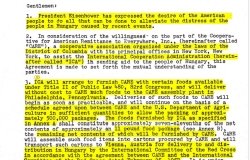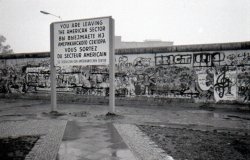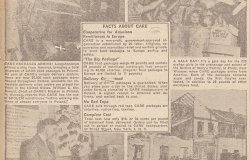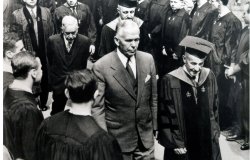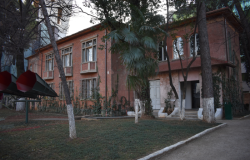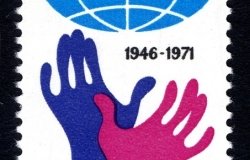Rebellious Satellite: Poland 1956
Pawel Machcewicz, Professor of History, University of Warsaw; Charles Gati, Professor of Russian and Eurasian Studies and Foreign Policy Institute Fellow, School of Advanced International Studies, Johns Hopkins University
Overview
Pawel Machcewicz, professor of History, University of Warsaw, Charles Gati, professor of Russian and Eurasian Studies and Foreign Policy Institute Fellow, School of Advanced International Studies, Johns Hopkins University
Pawel Machcewicz introduced his book Rebellious Satellite: Poland 1956 as his effort to give readers a view of the Cold War as seen from below. Machcewicz defined below – from the perspective of factory workers, peasants, and students. He argued that the lower strata of society often influence the course of history, but rarely have a voice in that history.
Machcewicz said that he was able to write a book from this perspective because of the declassification of archival materials from the fond of the Polish secret police and also of the Communist Party. He assessed the police documents as valuable and detailed, but cautioned that researchers must be careful about relying solely on them. According to Machcewicz, it was these documents that have allowed him to understand and express the popular opinion in small towns and the countryside in 1956.
In the book, Machcewicz looked at the events in Poland in 1956 as a revolution that never occurred. He argued that after Khrushchev's secret speech, economic and political liberalization accelerated in Poland, and pointed to workers' protests in June, October, and November of 1956 as the impetus for Wladyslaw Gomulka's rise to power. Machcewicz said that public unrest over poor social conditions, such as low salaries, unjust taxation, and poor local governance, transformed into broader unrest and demands for de-collectivization, greater autonomy of the Catholic Church, and greater freedom of culture and science.
The protests of 1956, according to Machcewicz, led to a less totalitarian and repressive form of government in Poland. He suggested that Gomulka found ways to meet popular demands that did not draw the intervention on the part of the Soviet authorities, steering the protests in a nationalist and anti-Stalinist direction instead of an overtly anti-Communist one. Machcewicz compared events in Poland and Hungary, and argued that Gomulka's skill and flexibility as a politician were critically important to keeping Soviet troops out of Poland.
Charles Gati praised Machcewicz for his significant archival work and substantial research. He argued that the social movement in Poland in 1956 was not directed against socialism but against the existing Sovietization. According to Gati, the people were demanding greater political and economic freedom. One key demand was the abolition of the Russian language requirement in schools.
Gati conceded that Gomulka gave hope to the Polish people, even though he remained a communist. He argued that, although Gomulka eventually betrayed the revolution, his liberalization and de-Sovietization efforts created a relatively resilient communist system in Poland that lasted for a long time. Gomulka was responsible for the transition from a totalitarian regime to an authoritarian regime, according to Gati. A totalitarian regime told its citizens what to do, while an authoritarian regime tells its citizens what not to do.
According to Gati, Machcewicz's book was readable, included some humorous incidents, and impressed with its treatment of evidence gathered from secret police reports.
Drafted by Amy Freeman and Kristina Terzieva
Christian F. Ostermann, Director, History and Public Policy Program
Hosted By

Cold War International History Project
The Cold War International History Project supports the full and prompt release of historical materials by governments on all sides of the Cold War. Through an award winning Digital Archive, the Project allows scholars, journalists, students, and the interested public to reassess the Cold War and its many contemporary legacies. It is part of the Wilson Center's History and Public Policy Program. Read more

History and Public Policy Program
The History and Public Policy Program makes public the primary source record of 20th and 21st century international history from repositories around the world, facilitates scholarship based on those records, and uses these materials to provide context for classroom, public, and policy debates on global affairs. Read more
Thank you for your interest in this event. Please send any feedback or questions to our Events staff.
